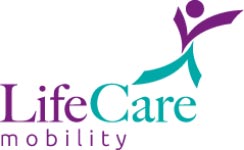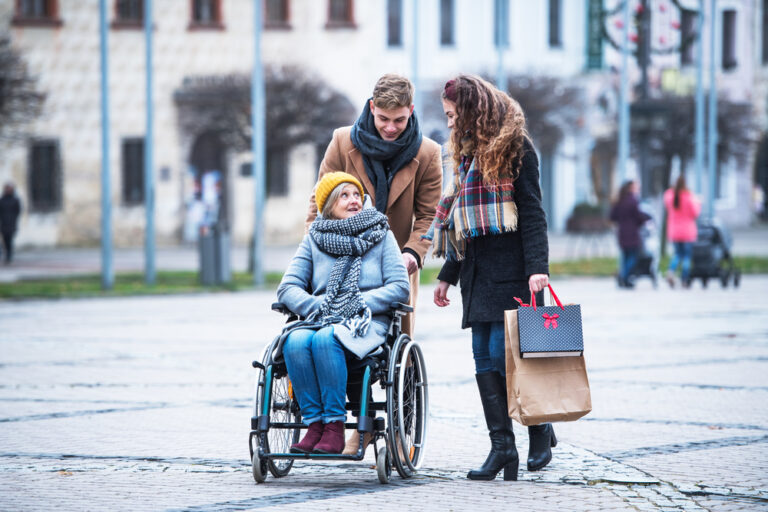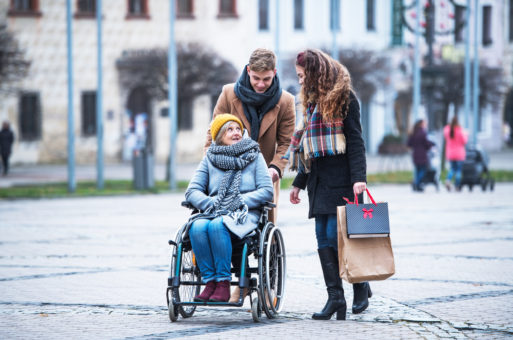The official start of winter takes place in a couple of weeks. But, as any Canadian knows, there’s no need to look at the calendar in order to get winter-ready. Below zero temperatures have already been in effect for about a month now. Quite obviously, we are experiencing the time of year when bundling up is a must. That goes double for seniors!
Older adults are more susceptible to illness and injury when the winter hits. As a result, during the year’s coldest days, it’s important to pay extra attention to senior safety. What steps should you take?
Layer up!
Layering is a common Canadian practice during the wintertime. But it’s especially important for seniors to wear layers when going outside on super cold days. As Andrea Lee points out on Care.com, cold temperatures can lead to frostbite and hypothermia. She notes that most deaths, due to hypothermia, occur with people over the age of 65.
“Going outside? Wear warm socks, a heavy coat, a warm hat, gloves and a scarf,” Lee insists, “In very cold temperatures, cover all exposed skin. Use a scarf to cover your mouth and protect your lungs. Your body temperature should never dip below 95 degrees — if it does get medical assistance immediately.”
Have a disaster kit on hand.
Here’s hoping you’ll enjoy a wondrous winter with no power outages. Almost nothing is worse than being without power on one of the coldest days of the year. It’s important to be prepared, just in case. As Anne-Marie Botek points out on AgingCare.com, winter storms can be fierce enough to knock down power lines, confining seniors in their homes.
“It is essential to make sure your loved one is equipped with a disaster kit to help them get through these times,” she writes, “Each kit should include enough non-perishable food and water for several days (at least 3 gallons of water per person per day), a can opener, a few days’ worth of any necessary medication, a flashlight, a battery-powered radio, extra batteries, and first-aid essentials.”
Watch out for those icy patches.
There’s no question that the great outdoors become a lot more dangerous during the wintertime. Specifically, surfaces that are wet often become icy. And, of course, this can result in numerous slips and falls. As we’ve pointed out numerous times in the past, slips and falls are the top causes for hospitalizations amongst Canadian seniors.
“Make sure to wear shoes with good traction and non-skid soles, and stay inside until the roads are clear,” advises Lee, “Replace a worn cane tip to making walking easier. Take off shoes as soon as you return indoors because often snow and ice attach to the soles and, once melted, can lead to slippery conditions inside.”
Invest in a mobility solution.
The last thing you want is your elderly loved one to slip and fall this winter. A mobility solution such as a walker, rollator, scooter or wheelchair can go a long way in ensuring his/her safety. If you have any questions about the mobility solutions and home healthcare products offered by LifeCare Mobility Solutions, please don’t hesitate to call us at 416-267-9800 or email us at info@lifecaremobility.ca. You may also contact us by filling out the form on our Contact page!











